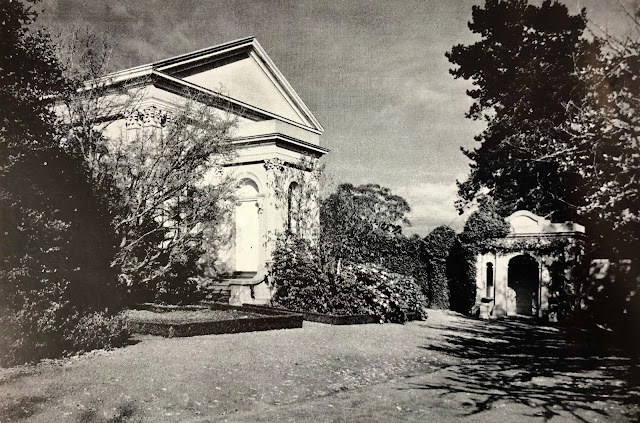No. 63 - Launceston's former York Street Baptist Church - "No Ordinary Man"
The former York Street Baptist church is not easily recognisable from the street and the boarded up gothic windows visible on the side of the building are the only evidence that a magnificent church was once located here.
The origin and early growth of the ‘Particular’ Baptists in Tasmania is largely due to the work of Reverend Henry Dowling. Dowling had been the pastor of a Baptist church in England before he arrived in Tasmania 1834 at the age of 60. He immediately commenced work as a Baptist missionary and conducted baptisms in the Rivers Derwent, Ouse, and the North Esk. In December 1840 the York Street Baptist Church was opened for worship with Henry Dowling as pastor. By 1847 the church found itself in severe financial difficulties due to the burden of a £1000 mortgage raised to purchase land and build the church. An appeal was made for public subscriptions and collectors were appointed. The church was ultimately freed from debt partly at the cost of selling the Baptist manse.
When Dowling retired in 1867 the Examiner described him as:
When Dowling retired in 1867 the Examiner described him as:
“…Truly one of the most remarkable of the early settlers. One who could surrender a pastorate of over 20 years duration, and at the age of 60 emigrate to the ends of the earth and carry on vigorous missionary and pastoral work, till the advanced age of 87, was no ordinary man”.
In her biography of Henry Dowling, Isabella Mead wrote:
“His short, neat figure belied his bustling habits. In politics he espoused the cause of civil and religious liberty; more ardently he advocated teetotalism and the Infant School, and made his home an asylum for the poor. In March 1856 he was presented with £100 to celebrate his fifty years as a minister, but continued to serve his congregation. In July 1863 he wrote firmly to the government, 'I cannot allow my name to be put on the Pension List’…."
Dowling remained active until his death on 29 March 1869 in his home adjoining the chapel.
The church went through a series of ministers following Dowling’s departure and the membership of the church suffered a steady decline. Under the leadership of Pastor William White, from Croydon, England, membership initially improved but by 1885 it dwindled down to approximately 50. The York Street Baptist community resisted William Gibson’s Baptist Union until William White’s death in 1913. The church had a brief revival under the Baptist Union from 1913 to 1916 after which it was closed. In 1918 the church was rented to the ‘Plymouth Brethren’ who continued to use the building as a Gospel Hall until 1939. At some stage after this it was sold by the Baptist Union and later converted into a commercial building.
Although the building's original structure has been significantly modified, it is listed on the Tasmanian heritage register for its historical significance to Tasmania’s Baptist movement.
 |
| A detail taken from a Stephen spurring photograph (c.1885) Libraries Tasmania LPIC119-1-005 |
 |
| A detail taken from a Stephen spurring photograph (c.1885) Libraries Tasmania LPIC119-1-005 |
 |
| Stephen Spurling: Source - Libraries Tasmania LPIC119-1-005 |
 |
| The old chapel can be clearly seen sandwiched between two later extensions. Photo: Duncan Grant 2018 |
 |
| Photograph: Duncan Grant 2018 |
 |
| Photograph: Duncan Grant 2018 |
 |
| The bleak and uninspiring modern facade. Photograph: Duncan Grant 2018 |
 |
| Notice in the Launceston Advertiser 1840 |
SOURCES
Launceston Examiner, Thursday 22 April 1869, page 2
Examiner, Wednesday 23 January 1918, page 7
Examiner Wednesday 23 January 1918
Examiner Wednesday 23 January 1918
The Launceston Advertiser Thursday 17 December 1840
Examiner, Saturday 14 March 1936, page 8
Isabella J. Mead, 'Dowling, Henry (1810–1885)', Australian Dictionary of Biography, National Centre of Biography, Australian National University, http://adb.anu.edu.au/biography/dowling-henry-2237/text2419, published first in hardcopy 1966, accessed online 16 April 2019.
Isabella J. Mead, 'Dowling, Henry (1810–1885)', Australian Dictionary of Biography, National Centre of Biography, Australian National University, http://adb.anu.edu.au/biography/dowling-henry-2237/text2419, published first in hardcopy 1966, accessed online 16 April 2019.



Comments
Post a Comment